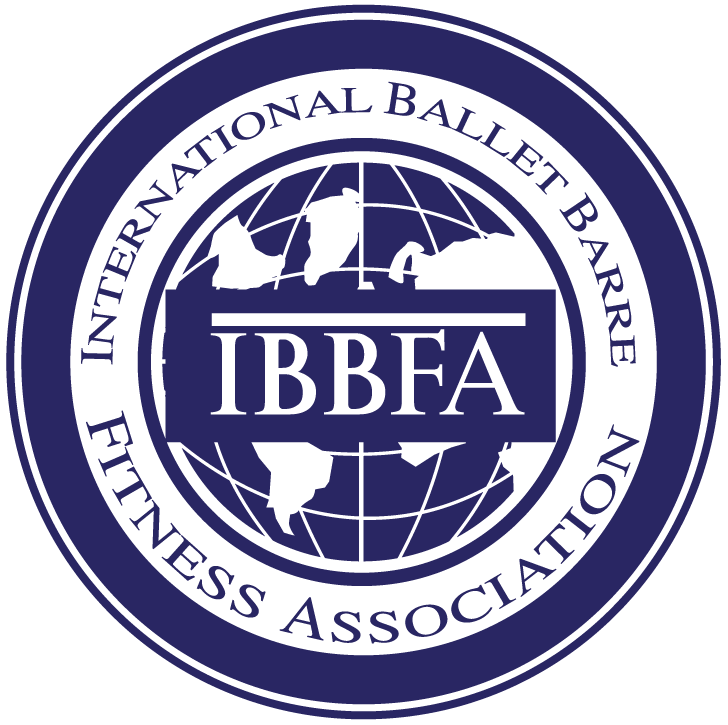IBBFA Code of Ethics
- Do no harm.
- Teach within your ‘scope of practice’ and give full attention to the comfort and safety of clients at all times. (See IBBFA ‘Scope of Practice’.)
- Maintain professional boundaries. The following constitutes improper behavior:
- Inappropriate physical contact
- Financial exploitation
- Sexual exploitation
- Maintain client confidentiality.
- Direct clients to seek medical attention when necessary.
- Do not discriminate against clients or colleagues on any level.
- Do not intentionally solicit for other Barre professionals’ clients.
- Treat clients and colleagues with respect, truth, fairness, and integrity.
- Comply with all applicable business, employment and intellectual property laws.
- Maintain professional appearance and conduct.
- Do not misrepresent skills, training, professional credentials, identity, or services.
- Continue gaining education to enhance your skills and knowledge, and to provide the highest quality services to clients.
- Maintain appropriate insurance (liability, studio, contents, etc.).
- Maintain appropriate teacher-to-student ratios in all class settings.
IBBFA Scope of Practice
- The following is within the scope of practice of a Barre instructor:
- Design Barre exercise programs according to an individual’s needs.
- Recognize conditions that would preclude a client from safely participating in a Barre exercise program.
- Coach, provide general information, and direct clients to seek medical attention as necessary.
- Receive exercise guidelines and clearance from medical practitioners, when appropriate, to ensure client safety.
- Document client progress and cooperate with referring medical practitioners.
- Promote exercise to improve overall health.
- Request permission from clients to perform tactile/physical corrections and observe practice laws within your jurisdiction.
- Use appropriate touch to facilitate movement, position the client, and prevent injury or damage.
The following is beyond the scope of practice of a Barre instructor:
- “Prescribing” an exercise program.
- “Diagnosing” a client with any medical, mental or physical condition.
- Continuing to train a client with a condition that is beyond your knowledge without appropriate medical clearance.
- “Prescribing” diets or recommending supplements.
- Claiming to “treat” or “rehabilitate” injury or disease.
- Monitoring (measuring with instrumentation) the progress of clients referred by therapists or medical practitioners.
- Offering counseling.
- Claiming to be competent to offer professional education beyond the limits of your credentials.
- Applying inappropriate touch.
- Continuing to train a client who exhibits any of the following unusual symptoms: e.g. chest pain, prolonged dizziness, rapid heart rate, shortness of breath, significant decrease in coordination, loss of consciousness, faintness, nausea, blurred vision, prolonged or increasing pain.
Grounds for Disciplinary Action Guidelines
The International Ballet Barre Fitness Association (IBBFA) has established the following guidelines to inform certificants, candidates for certification, and the public of its requirement for adherence to professional standards. The International Ballet Barre Fitness Association may refuse to certify, suspend, or revoke an existing certification or otherwise take action with regard to the application or certification of an individual in the event of any of the following:
- Ineligibility for certification or certification renewal.
- Irregularity in connection with any certification exam.
- Unauthorized possession, use, or distribution of exam score reports, trademarks, logos, written materials, answer sheets, certificates, certificant or applicant files, or other confidential or proprietary materials (registered or otherwise) of the International Ballet Barre Fitness Association or the testing body.
- Material misrepresentation or fraud in any statement to IBBFA, to an employer or potential employer, or to the public, including but not limited to statements made to help the individual apply for, obtain, or retain certification.
- Any physical, mental, or emotional condition of either temporary or permanent nature, including, but not limited to, substance abuse, which impairs or has the potential to impair competent and objective professional performance.
- Negligent and/or intentional misconduct in professional work, including, but not limited to, physical or emotional abuse, disregard for safety, or the unauthorized release of confidential information.
- The timely conviction, plea of guilty, or plea of nolo contendere in connection with a felony or misdemeanor that is directly related to public health and/or Barre instruction or education and that impairs or has the potential to impair competent and objective professional performance and/or public confidence in the profession. These include, but are not limited to, rape, sexual abuse, actual or threatened use of a weapon or violence, or the prohibited sale, distribution, or possession with intent to distribute of a controlled substance.
Ethics Violations on the part of a IBBFA Certificant may be reported by following the Professional Practice and Disciplinary Procedures available on the IBBFA website.
